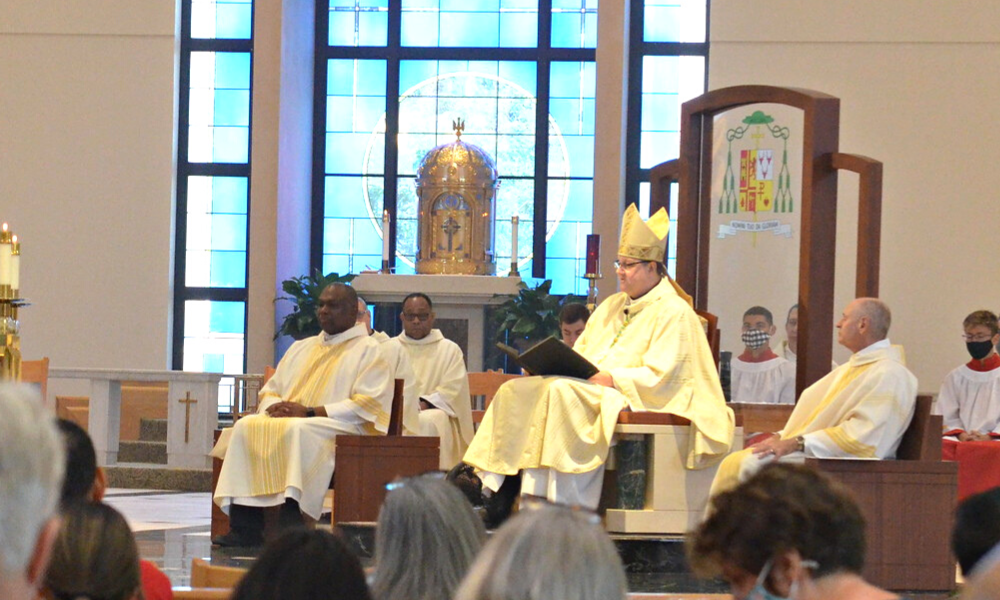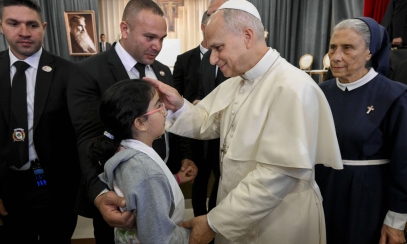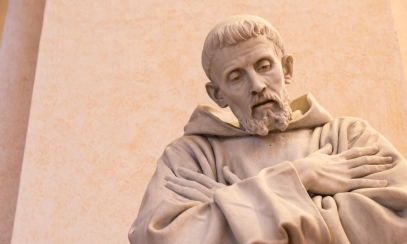
Synod Document Asks How to Increase Unity, Participation, Mission Outreach
June 23, 2023 | In a church that "bears the signs of serious crises of mistrust and lack of credibility," members of the assembly of the Synod of Bishops will be asked to find ways to build community, encourage the contribution of every baptized person and strengthen the church's primary mission of sharing the Gospel, said the working document for the October gathering this year.
June 23, 2023 | In a church that "bears the signs of serious crises of mistrust and lack of credibility," members of the assembly of the Synod of Bishops will be asked to find ways to build community, encourage the contribution of every baptized person and strengthen the church's primary mission of sharing the Gospel, said the working document for the October gathering this year.
"A synodal church is founded on the recognition of a common dignity deriving from baptism, which makes all who receive it sons and daughters of God, members of the family of God, and therefore brothers and sisters in Christ, inhabited by the one Spirit and sent to fulfil a common mission," said the document, which was released at the Vatican June 20.
However, it said, many Catholics around the world report that too many baptized persons -- particularly Catholics who struggle with gender dysphoria, the divorced and civilly remarried, the poor, women and people with disabilities -- are excluded from active participation in the life of the church and, particularly, from its decision-making structures.
Based on the input from listening sessions held around the world since October 2021 and, especially, from reports submitted from continental and regional synod sessions earlier this year, the working document asks members of the synod to focus their prayer, discussion and discernment on three priorities:
-- Communion, asking: "How can we be more fully a sign and instrument of union with God and of the unity of all humanity?"
-- "Co-responsibility in mission: How can we better share gifts and tasks in the service of the Gospel?"
-- "Participation, governance and authority: What processes, structures and institutions are needed in a missionary synodal church?"
The first synod assembly, scheduled for Oct. 4-29, "will have the task of discerning the concrete steps which enable the continued growth of a synodal church, steps that it will then submit to the Holy Father," the document said. Some questions, perhaps many of them, will require further discernment and study with the help of theologians and canon lawyers, which is why a second assembly of the synod will be held in October 2024.
Even then, resolving every issue raised in the synod listening sessions is unlikely, the document said. But "characteristic of a synodal church is the ability to manage tensions without being crushed by them."
The working document includes worksheets with questions "for discernment" that synod members will be asked to read and pray with before arriving in Rome.
One of them asks, "What concrete steps can the church take to renew and reform its procedures, institutional arrangements and structures to enable greater recognition and participation of women, including in governance, decision-making processes and in the taking of decisions, in a spirit of communion and with a view to mission?"
"Most of the continental assemblies and the syntheses of several episcopal conferences," it said, "call for the question of women's inclusion in the diaconate to be considered. Is it possible to envisage this, and in what way?"
As the synod process has taken place, questions have been raised about the relationship between participation in the life of the church and the call to conversion, the document said, which raises "the question of whether there are limits to our willingness to welcome people and groups, how to engage in dialogue with cultures and religions without compromising our identity, and our determination to be the voice of those on the margins and reaffirm that no one should be left behind."
Another tension highlighted in the process involves shared responsibility in a church that believes its hierarchical structure is willed by Christ and is a gift.
The working document reported a "strong awareness that all authority in the church proceeds from Christ and is guided by the Holy Spirit. A diversity of charisms without authority becomes anarchy, just as the rigor of authority without the richness of charisms, ministries and vocations becomes dictatorship."
But the document asked members to discuss, think and pray about ways that authority can be exercised more as leadership that empowers shared responsibility and creativity.
"How can we renew and promote the bishop's ministry from a missionary synodal perspective?" it asked.
"How should the role of the bishop of Rome (the pope) and the exercise of his primacy evolve in a synodal church?" the document said. The question echoed St. John Paul II's invitation in his 1995 encyclical, "Ut Unum Sint," ("That They May be One"), for an ecumenical exploration "to find a way of exercising the primacy which, while in no way renouncing what is essential to its mission, is nonetheless open to a new situation."
The working document also asked synod members to consider ways more priests, religious and laypeople could be involved in the process of choosing bishops.
Throughout the listening sessions at every level, the document said, people recognized that Catholics cannot share fully in the spiritual discernment needed for true co-responsibility without further education in the Christian faith, Catholic social teaching and in the process of discernment itself and how it differs from simply discussing a problem and voting on possible solutions.
In particular, it said, "all those who exercise a ministry need formation to renew the ways of exercising authority and decision-making processes in a synodal key, and to learn how to accompany community discernment and conversation in the Spirit."
"Candidates for ordained ministry must be trained in a synodal style and mentality," it said, and the seminary curriculum must be revised "so that there is a clearer and more decisive orientation toward formation for a life of communion, mission and participation."



